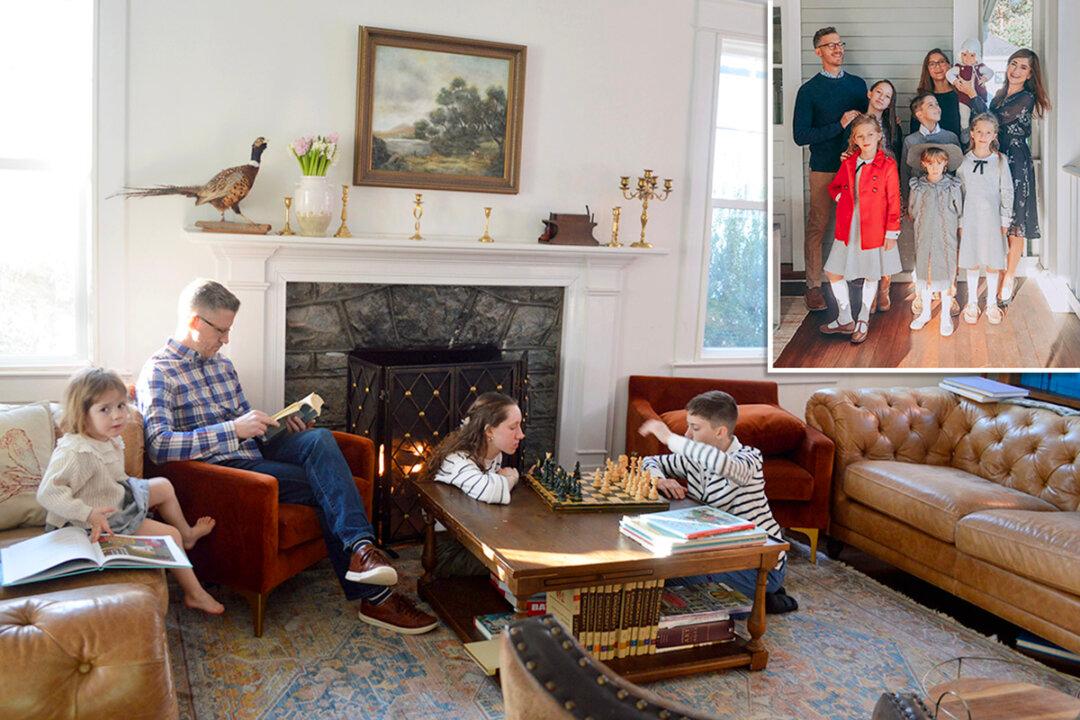After an eye-opening trip to New York City, a Virginia-based couple with eight kids decided to implement a new idea in their home: a technology-free room that encourages their children to talk, play, and enjoy quality time without any screens or technology.
Software executive Ben Collins, 40, and his wife, Adele Collins, 40, a stay-at-home mom, have seven daughters and one son, ranging in age from 16 years to 5 months old.





